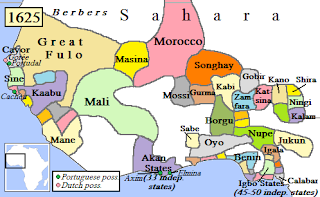THE OYO EMPIRE: the origin, culture, powers of the most vast empire in the Yoruba lands

Yoruba state north of Lagos, in present-day southwestern Nigeria, that dominated, during its apogee Oyo Empire was one of the Largest Empire in West African state established by Yoruba people in (1650–1750), most of the states between the Volta River in the west and the Niger River in the east. It was the most important and authoritative of all the early Yoruba principalities. the Oyo Empire grew to become one of the largest West African states. It rose through the outstanding organizational skills of the Yoruba, wealth gained from trade and its powerful cavalry . The Oyo Empire was the most politically important state in the region from the mid-17th to the late 18th century, holding sway not only over most of the other kingdoms in Yorubaland , but also over nearby African states, notably
